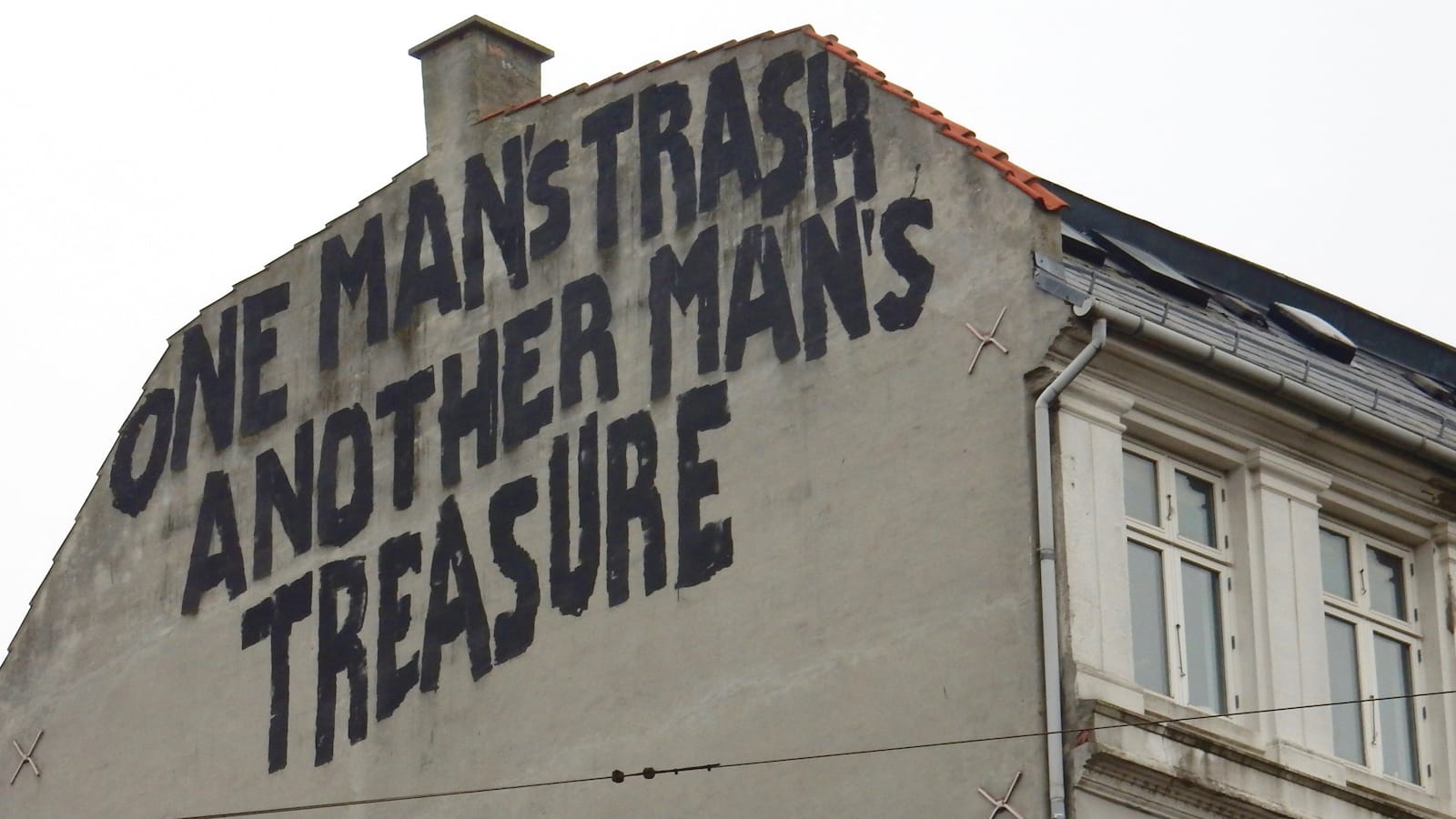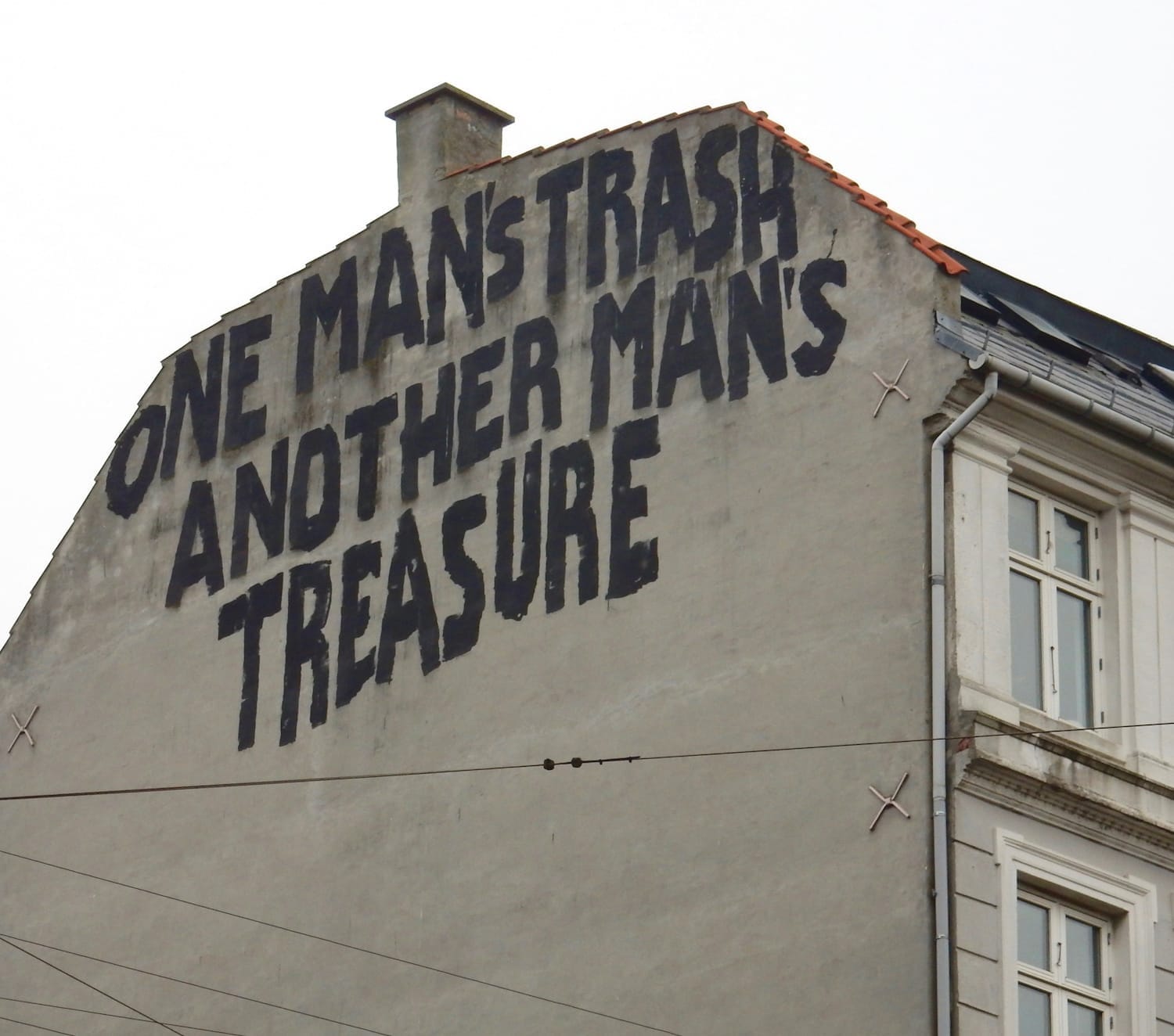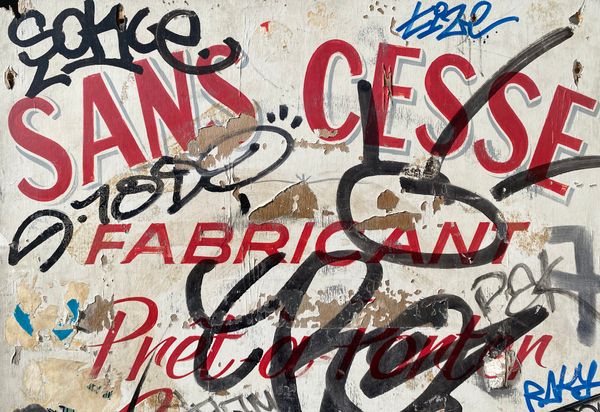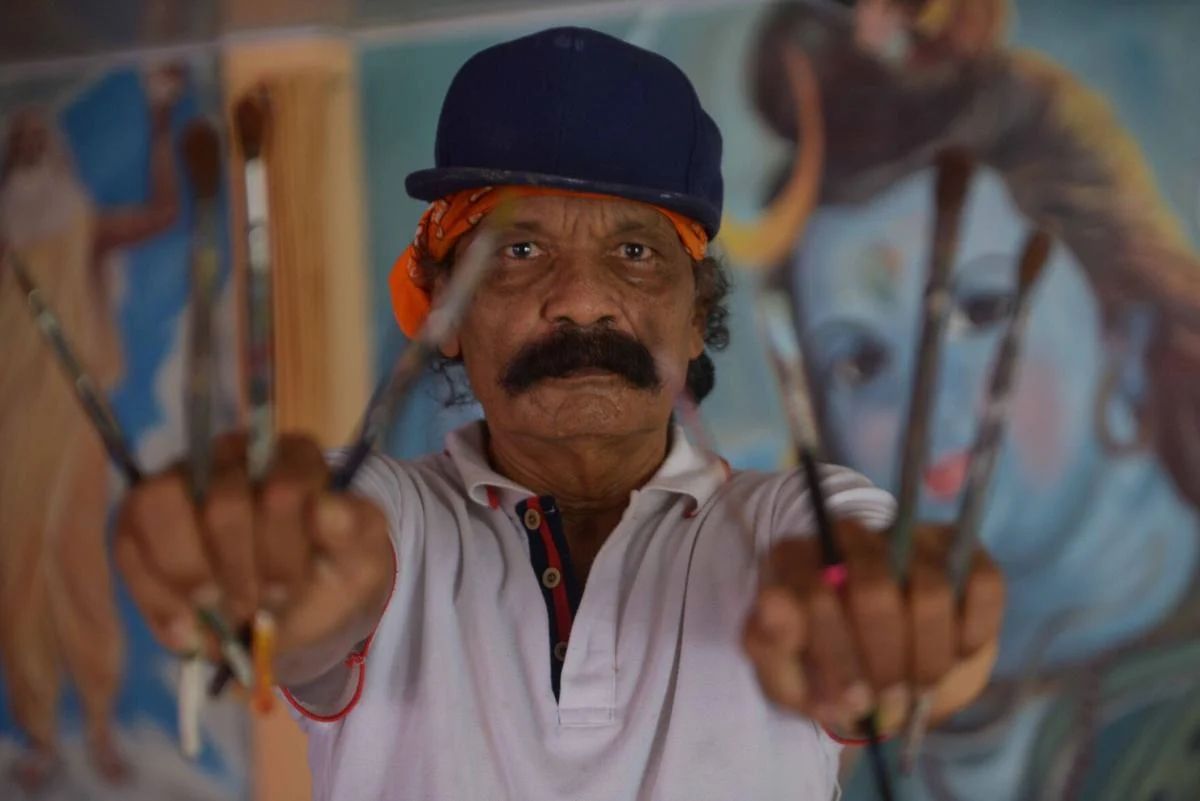Chain Letter: Guido de Boer
Visual artist and educator Guido de Boer finds meaning in a phrase painted on a Copenhagen wall.

'Chain Letter' invites a sign painter or lettering artist to share a piece of lettering that has influenced or inspired them, before passing the baton to someone else, in a never-ending chain.
In the last one, Marie Pressmar nominated Guido de Boer, a visual artist and educator in Utrecht in the Netherlands who works freehand with brush and ink to create large, monumental installations.
What have you selected?
Published in the 1860s, Hector Urquhart's Popular Tales of the West Highlands contains the line, "one man's rubbish may be another's treasure". The phrase has gained currency in the years since, and this interpretation was produced in Nørrebro, Copenhagen, Denmark in around 2010.
It seems likely that it was painted by SPYO from Birds Crew, but the work and its message is more important than who produced it.

How did it inspire you?
I love it when a sentence like this appears in your life, and strikes you so hard when you least expect it. I think the work is a great reminder that we are always, and everywhere, surrounded by so much beauty, and so many surprises; we only need to see it with our eyes, and to keep our minds open to receive it.
It was such a lovely moment when I got to stand in front of this piece for the first time; it had been a personal favourite from the first moment I saw it online.
And I'm not the only one that has been inspired by it. The title and opening shot of this short film by Mattia de Vito is taken directly from the piece, and it features in the painting, 'One Mans Trash', by Danish artist Pil Anna Tesdorpf.
Who would you like to see next in the Chain Letter?
I'd like to pass the chain to Miranda Ensink in Amsterdam in the Netherlands.
More Chain Letters

More People


